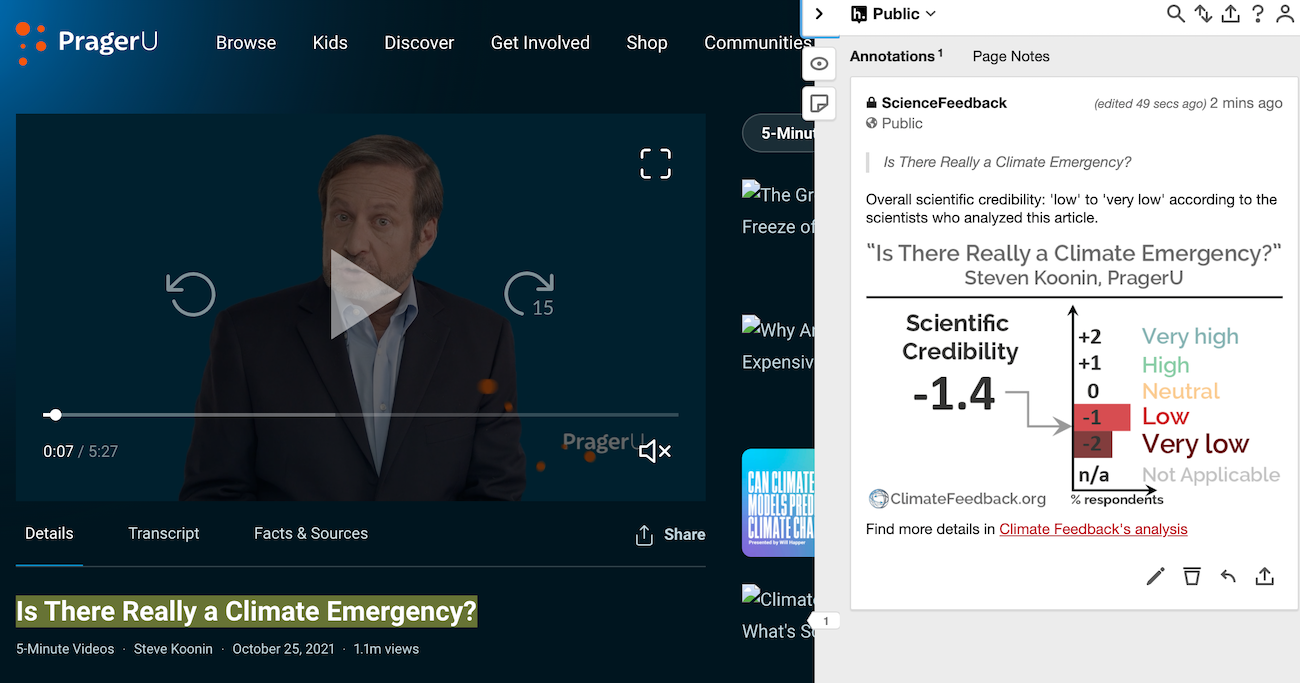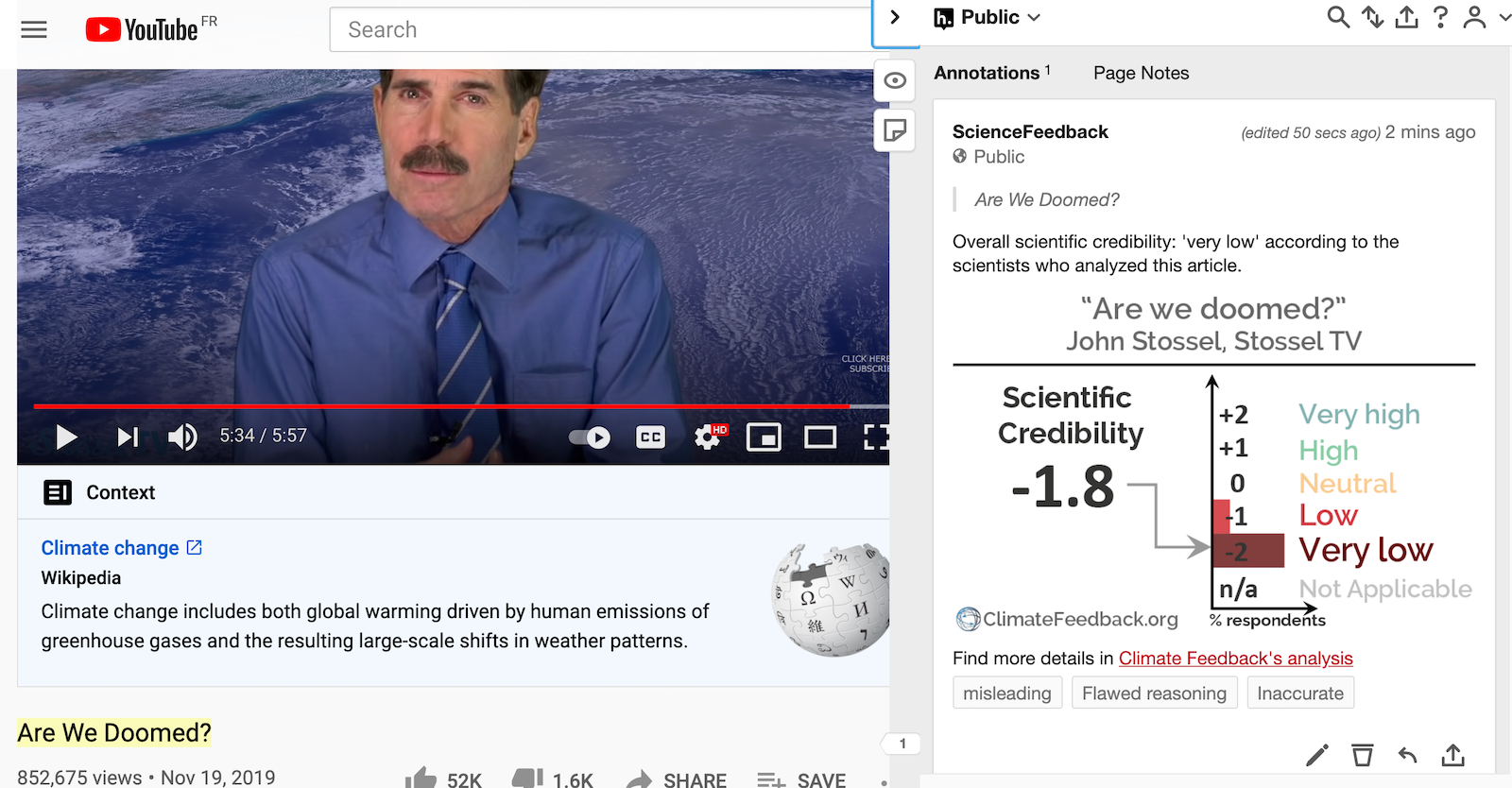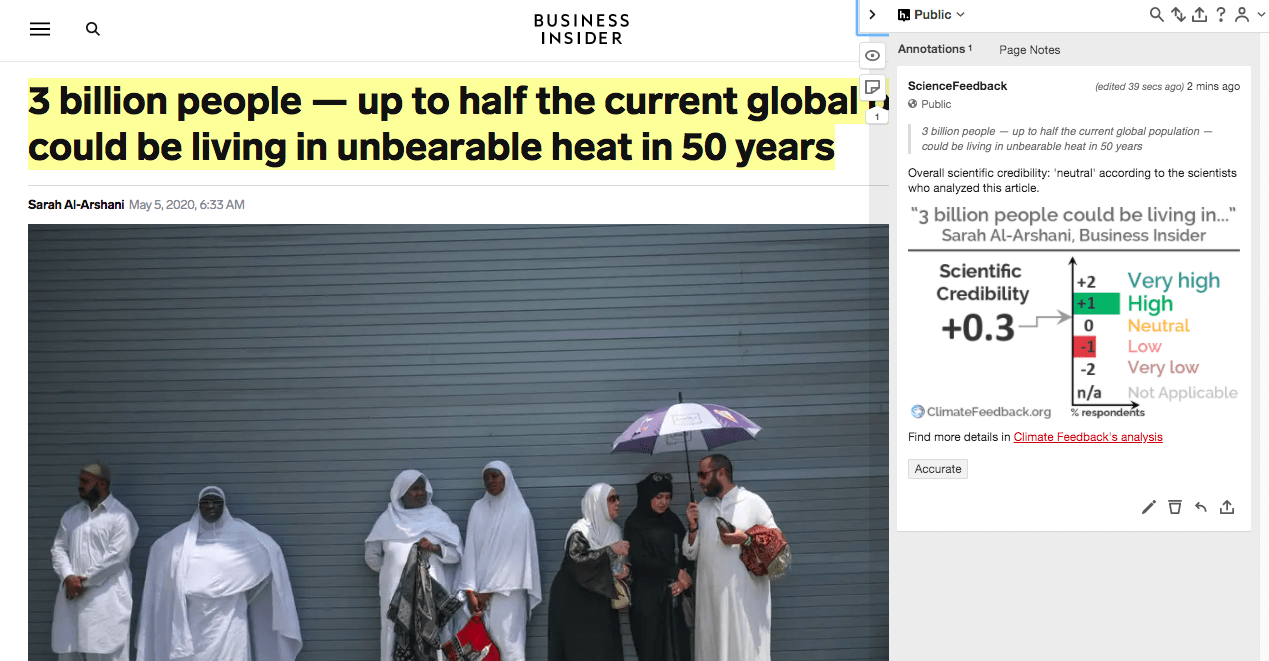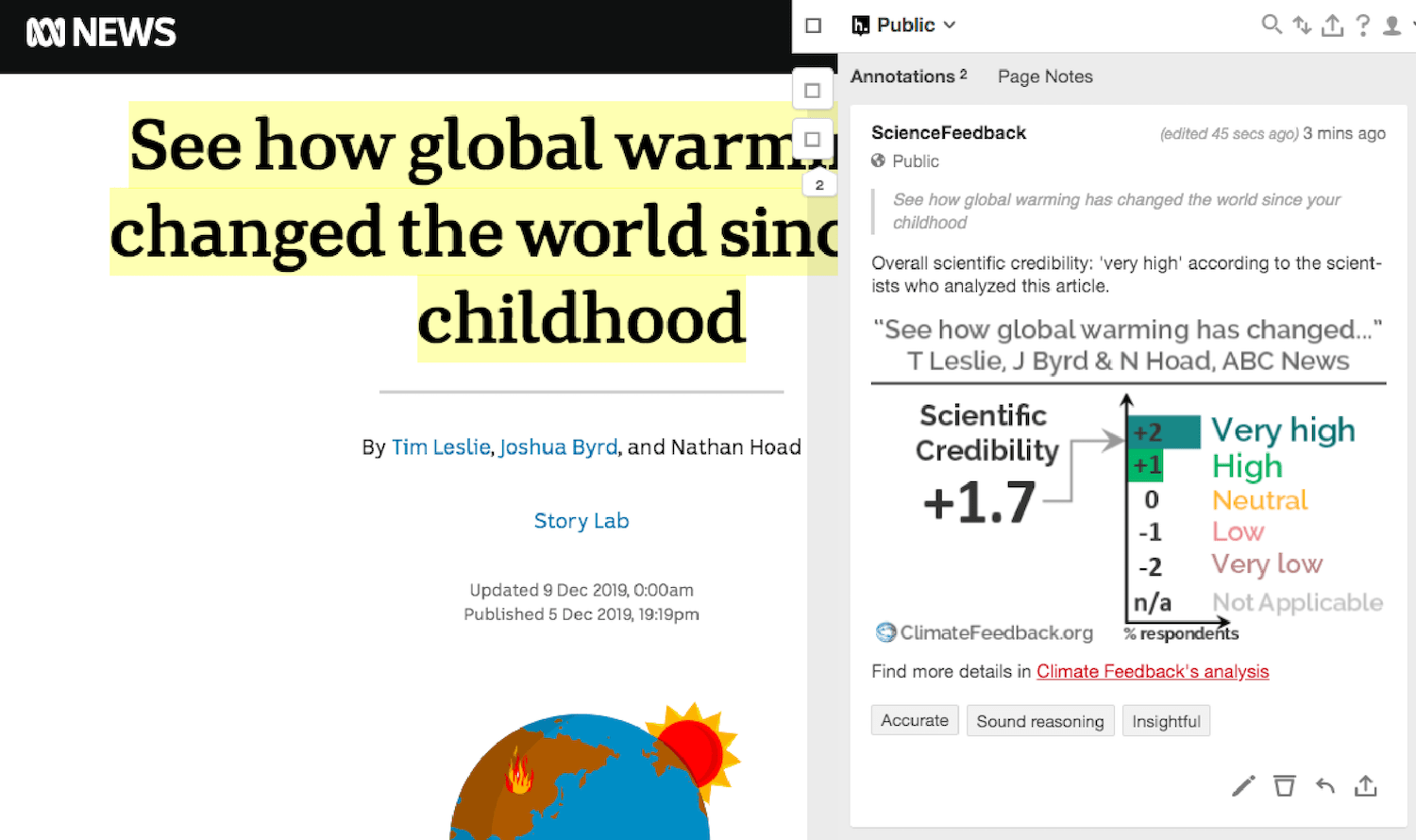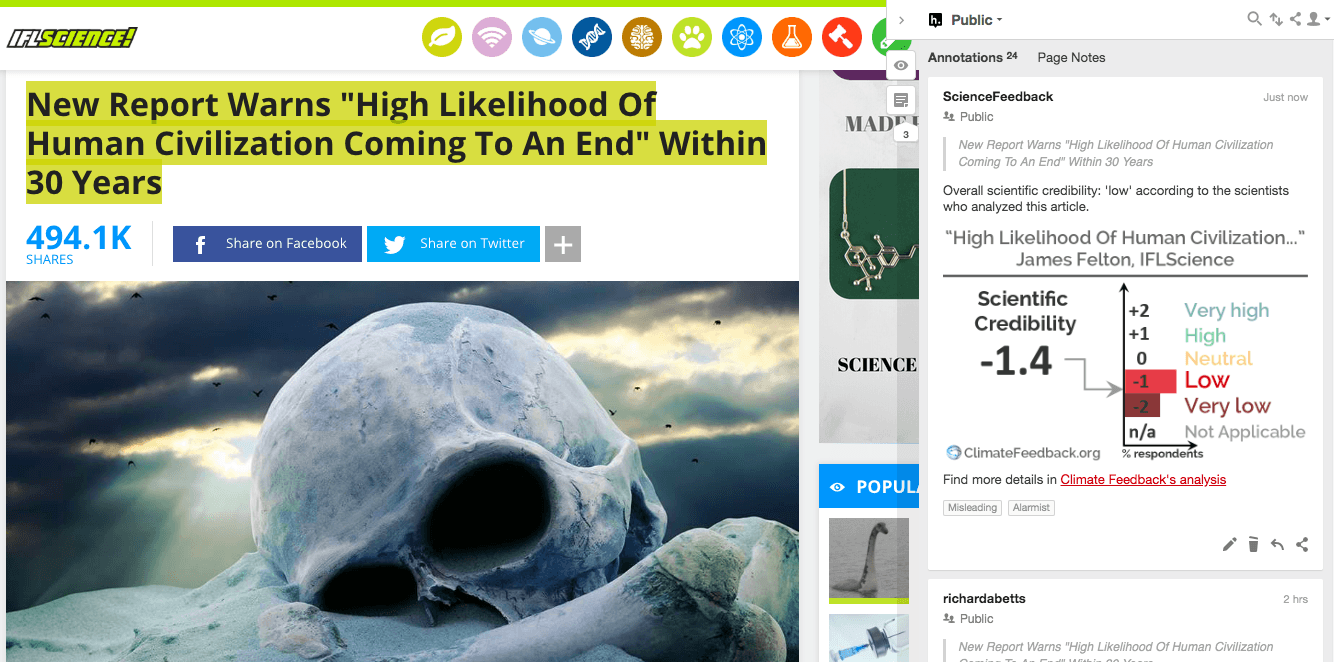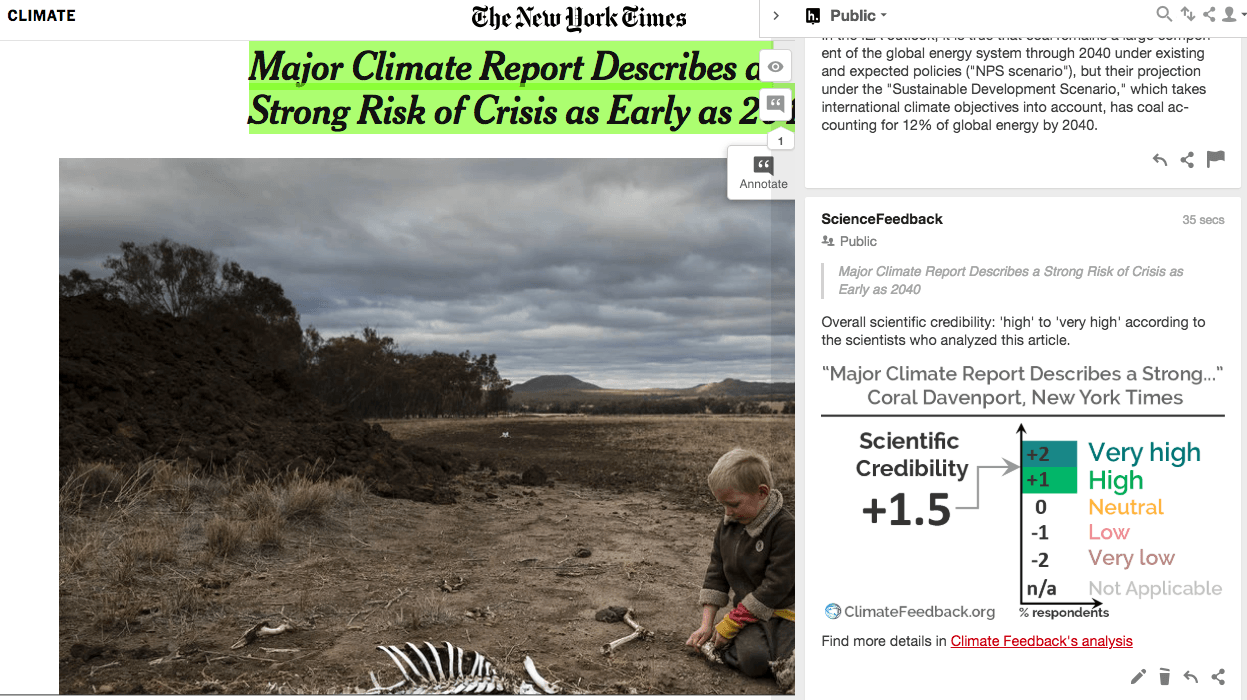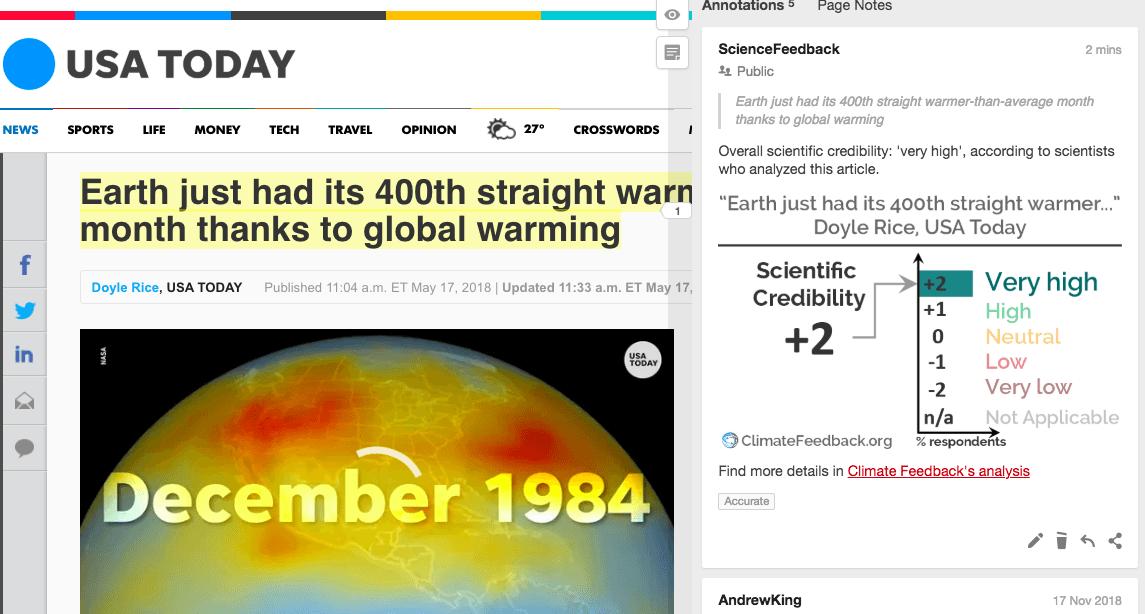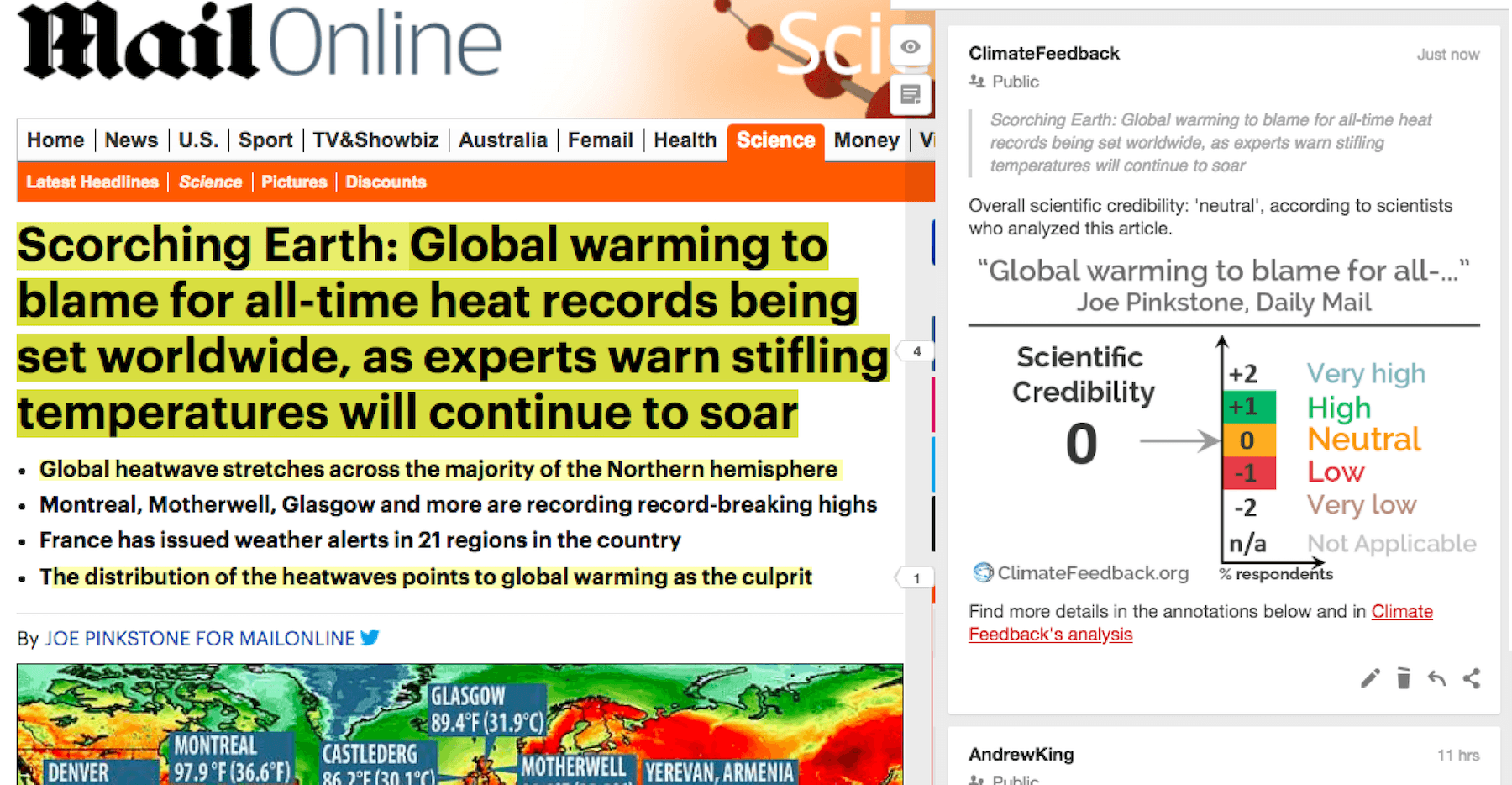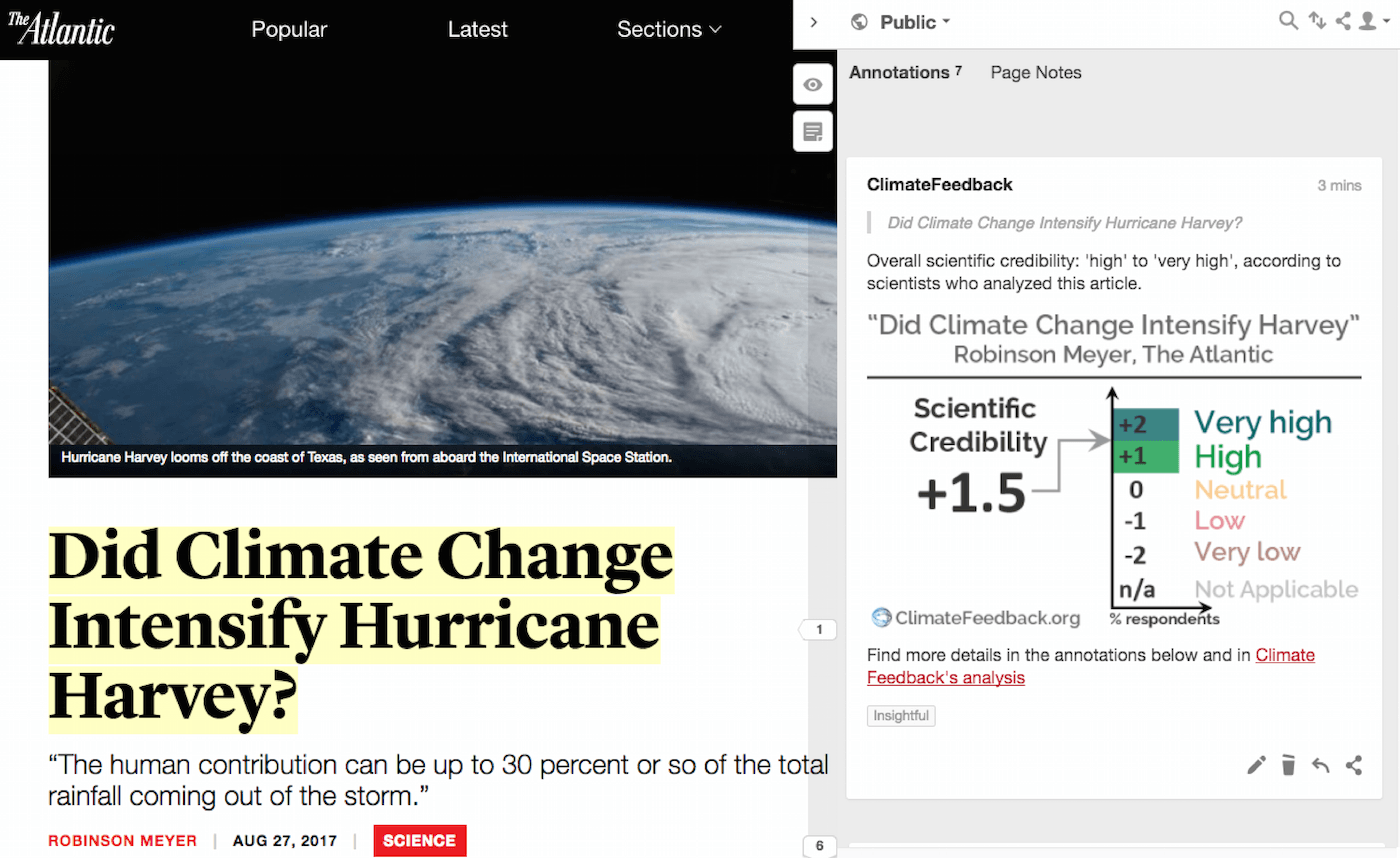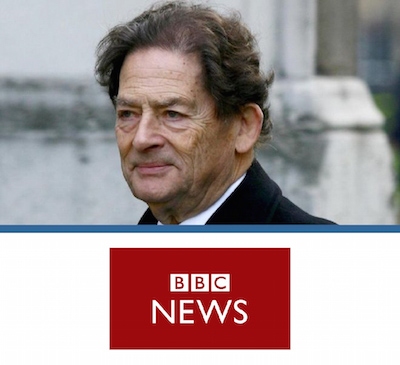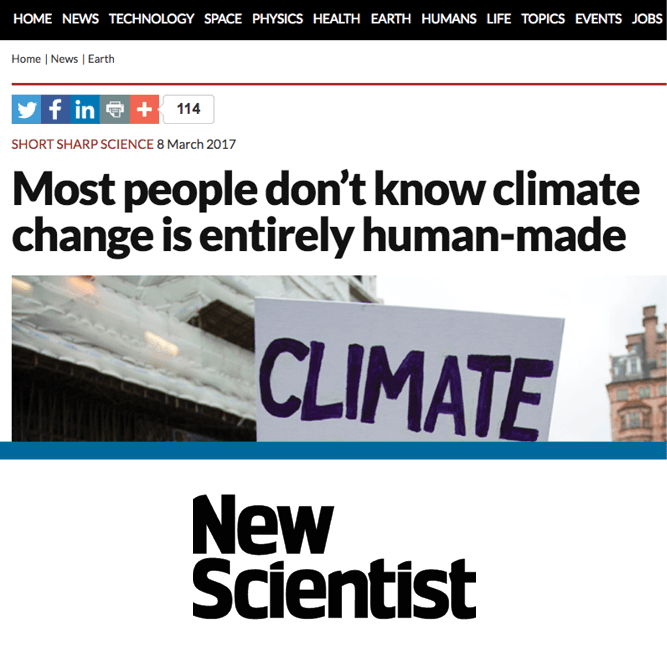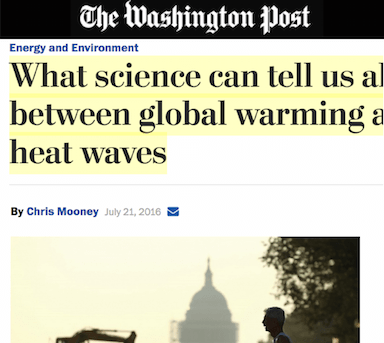.
Andrew King
Research fellow, University of Melbourne
Expertise: Climate Extremes, Climate Variability, Detection and Attribution
Details:
Qualifying publication(s): see criteria
![]() http://iopscience.iop.org/article/10.1088/1748-932
http://iopscience.iop.org/article/10.1088/1748-932
ARTICLES REVIEWED
PragerU video on climate change repeats a range of misleading claims by Steven Koonin
in PragerU, by Steve Koonin
— 29 Nov 2021
Video promoted by John Stossel for Earth Day relies on incorrect and misleading claims about climate change
in Stossel TV, by John Stossel, Patrick Michaels, David Legates
— 21 Apr 2021
Article in Business Insider accurately describes results from a study estimating up to 3 billion people could live in much warmer temperatures by 2070
in Business Insider, by Sarah Al-Arshani
— 12 May 2020
ABC article effectively illustrates important climate trends for Australian readers
in Australian Broadcasting Company, by Tim Leslie, Joshua Byrd, Nathan Hoad
— 11 Dec 2019
Claim that human civilization could end in 30 years is speculative, not supported with evidence
in IFLScience, by James Felton
— 09 Jun 2019
New York Times’ coverage of IPCC report clearly presents conclusions
in The New York Times, by Coral Davenport
— 24 Jan 2019
USA Today story updates readers on trend in monthly global temperatures
in USA Today, by Doyle Rice
— 14 Jan 2019
Daily Mail correctly reports that climate change leads to more severe heatwaves, but explanation of recent weather is off the mark
in Daily Mail, by Joe Pinkstone
— 07 Jul 2018
The Australian’s coverage of Great Barrier Reef study creates perception that scientists are divided
in The Australian, by Graham Lloyd
— 22 Apr 2018
The Atlantic accurately explores climate context for Tropical Storm Harvey
in The Atlantic, by Robinson Meyer
— 29 Aug 2017
CLAIMS REVIEWED
Climate change likely helped increase Hurricane Harvey’s rainfall, but too early to say exactly by how much
SOURCE: Robinson Meyer, The Atlantic
Published: 29 Aug 2017

Some extreme weather events are clearly becoming more common, in contrast to Lord Lawson’s claim
SOURCE: Nigel Lawson, BBC
Published: 10 Aug 2017

Claim in New Scientist that humans are responsible for over 100% of warming is mostly correct
SOURCE: Michael Le Page, New Scientist
Published: 11 Mar 2017

Heat waves in the U.S. have already become more frequent and intense due to global warming
SOURCE: Chris Mooney, The Washington Post
Published: 24 Jul 2016


